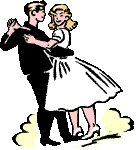FOR MY DEAR STUDENTS
- I'm Azucena Daquilema, your English teacher and friend in this new year 2014-2015. Surely, you come to Consejo Provincial de Pichincha High School with many illusions, goals and wishes to achieve the best in your life specially in your studies. You're a very responsible, kind and a good student.
TASK ON THE BLOG
- Please, introduce yourself and write two objectives or compromises that you would like to reach them in your new school year.
- This task is for september 8th. Thanks for your responsibility.







